Decision Support Systems: Types, Functions, and Limitations Analysis
VerifiedAdded on 2023/04/19
|5
|425
|297
Report
AI Summary
This report provides a comprehensive overview of Decision Support Systems (DSS). It begins by highlighting the role of DSS in assisting managers with decision-making, improving their ability to make informed and balanced decisions, and providing user-friendly interfaces for real-time responses. The report then explores different types of DSS, including model-based, data-based, and those utilizing Online Analytical Processing and Data Mining. The key functions of DSS are discussed, including data quantification, model manipulation, and information management. Furthermore, the report differentiates between structured, semi-structured, and unstructured decisions, detailing the components and characteristics of each. Finally, the limitations of DSS are examined, such as challenges faced by small businesses, difficulties in data analysis, and the importance of understanding the assumptions underlying the systems. This information is crucial for anyone seeking to understand the practical application and potential drawbacks of DSS in a business context.
1 out of 5
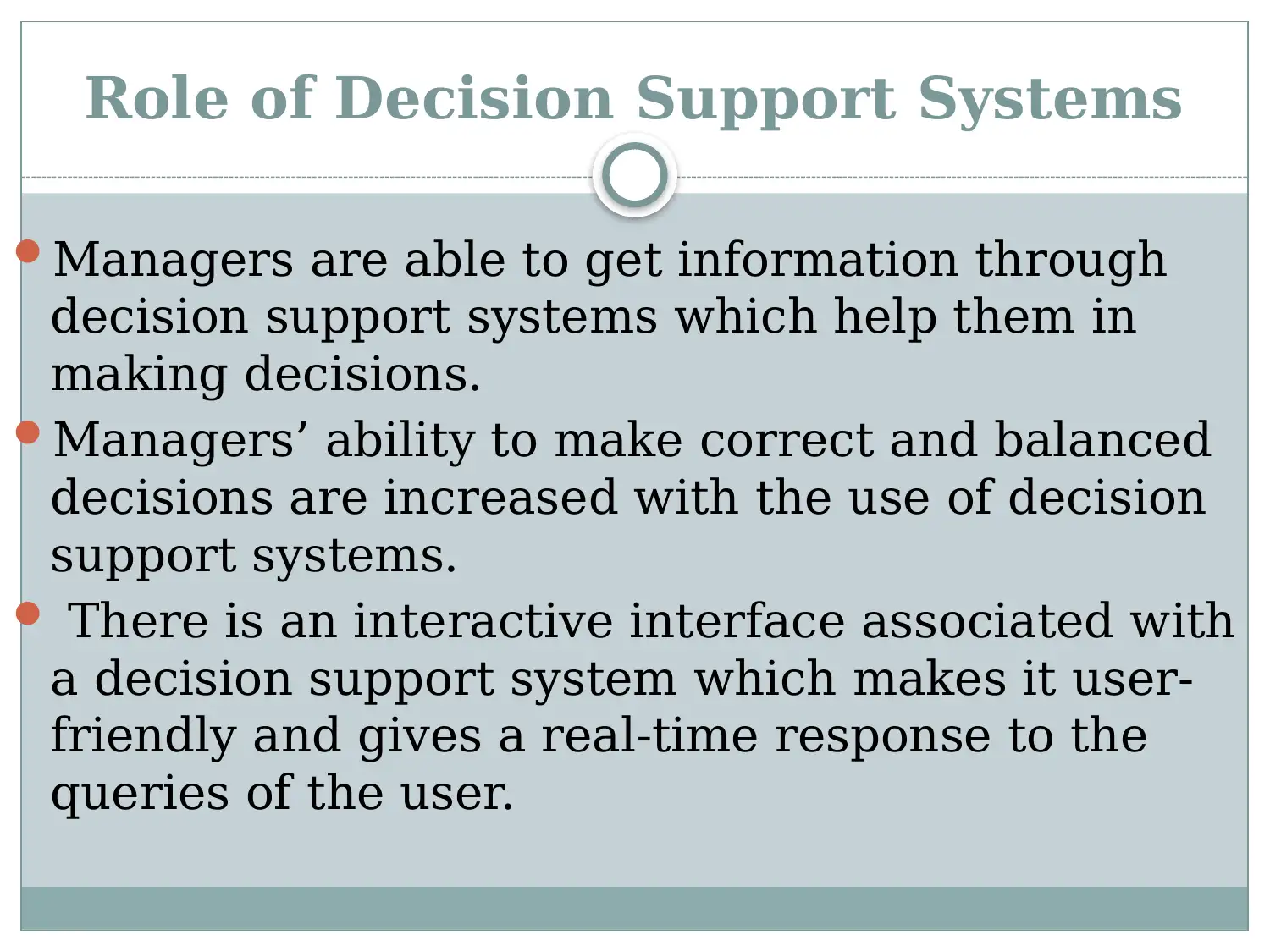
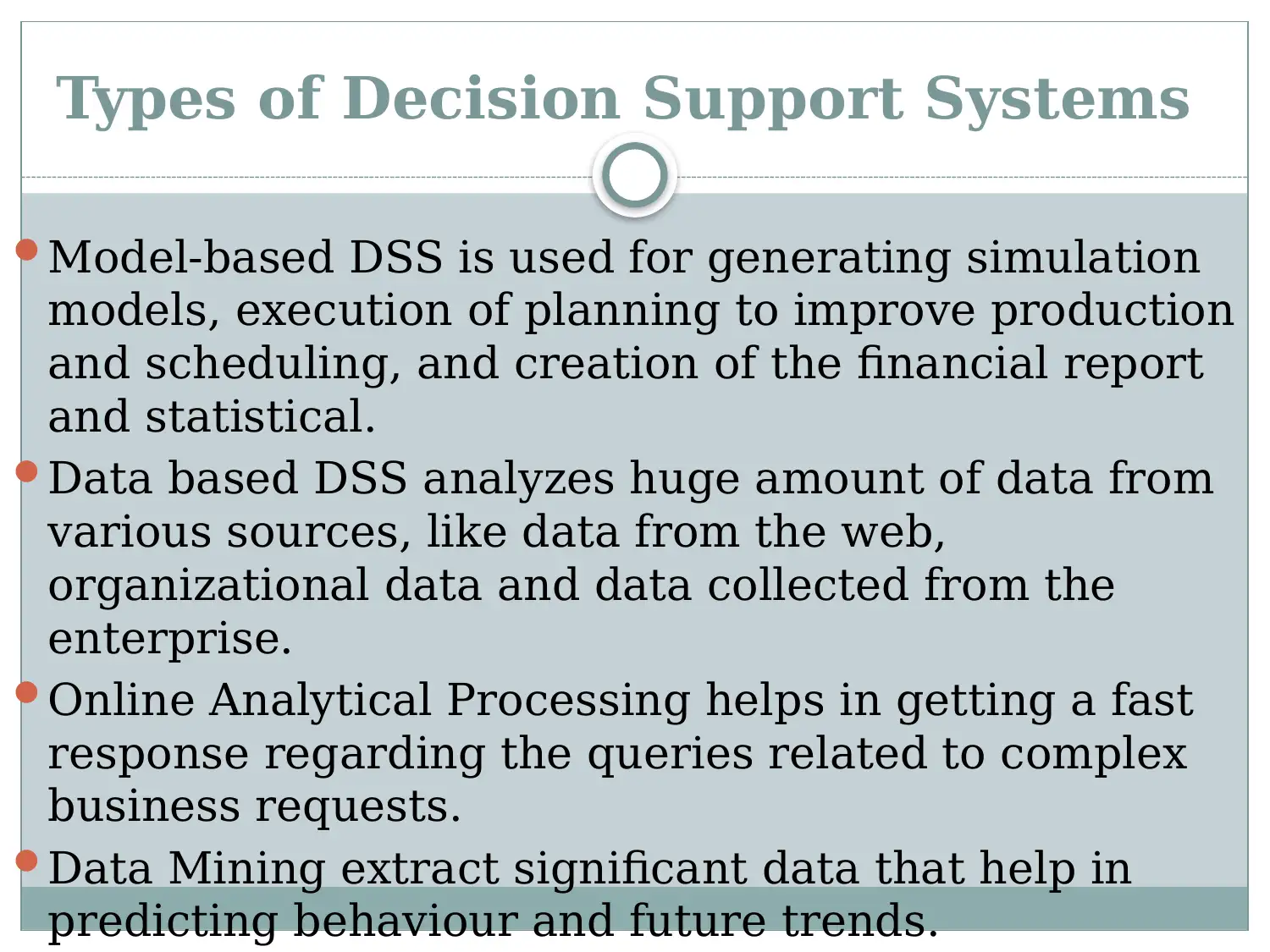
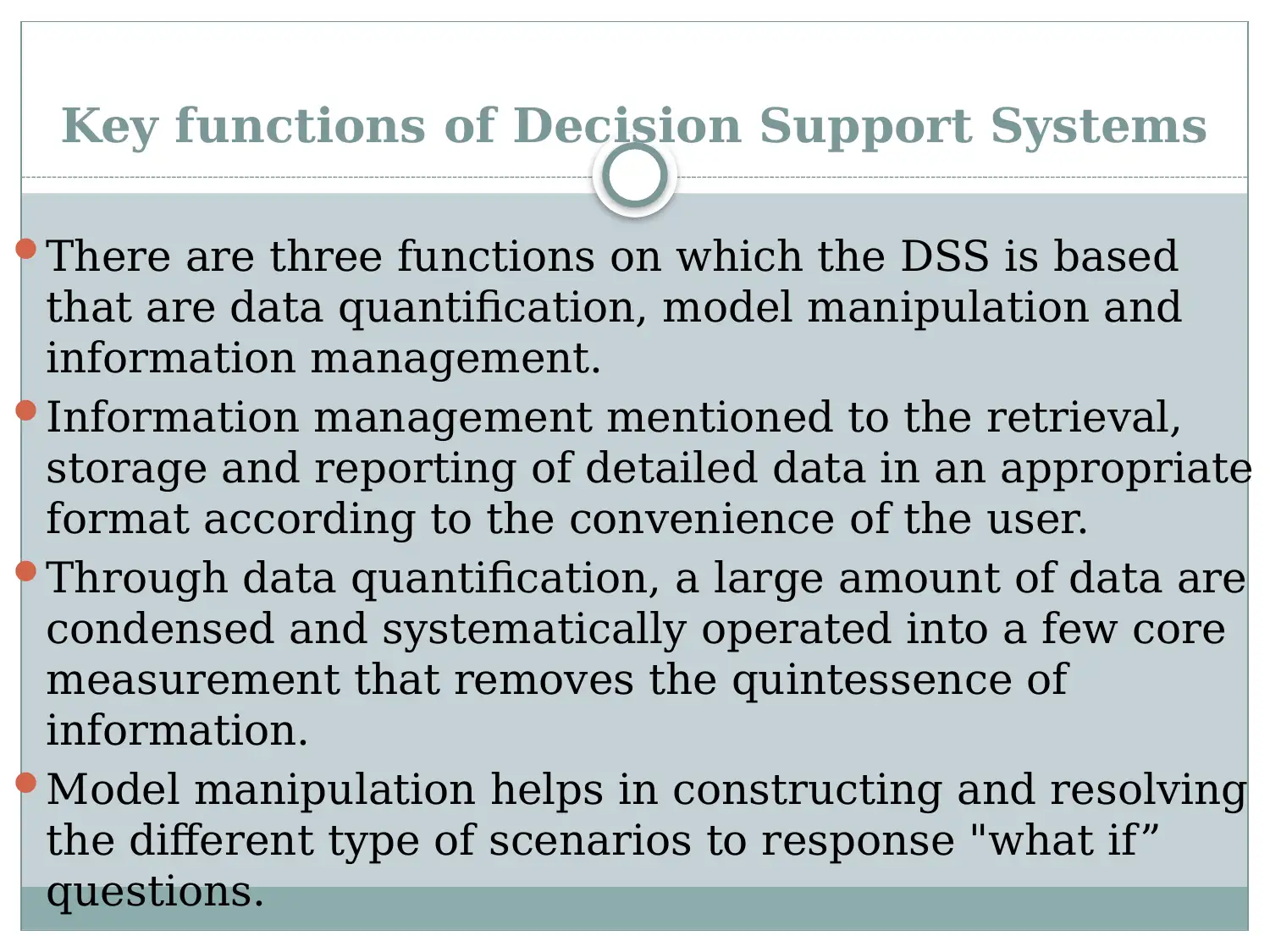

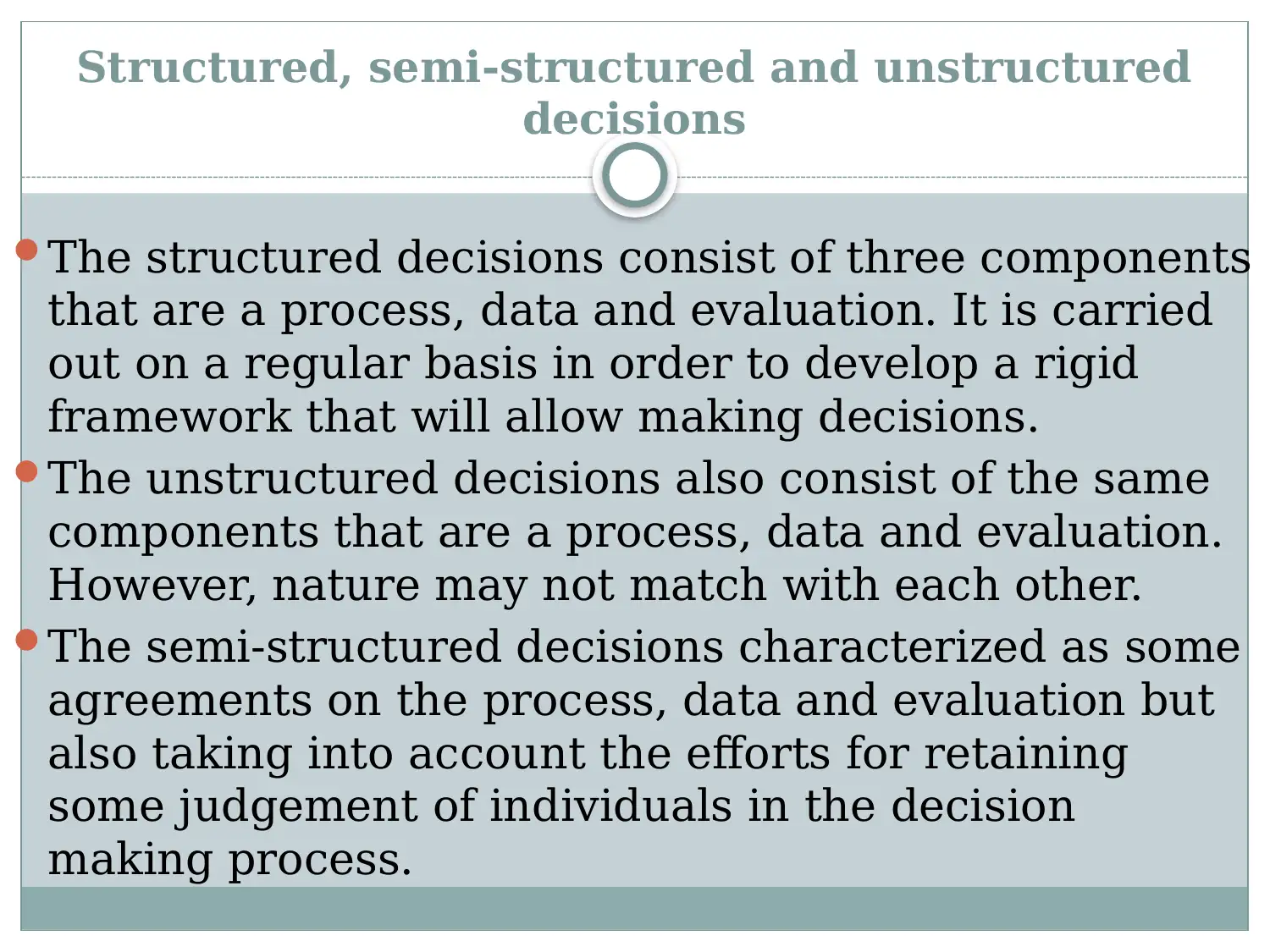
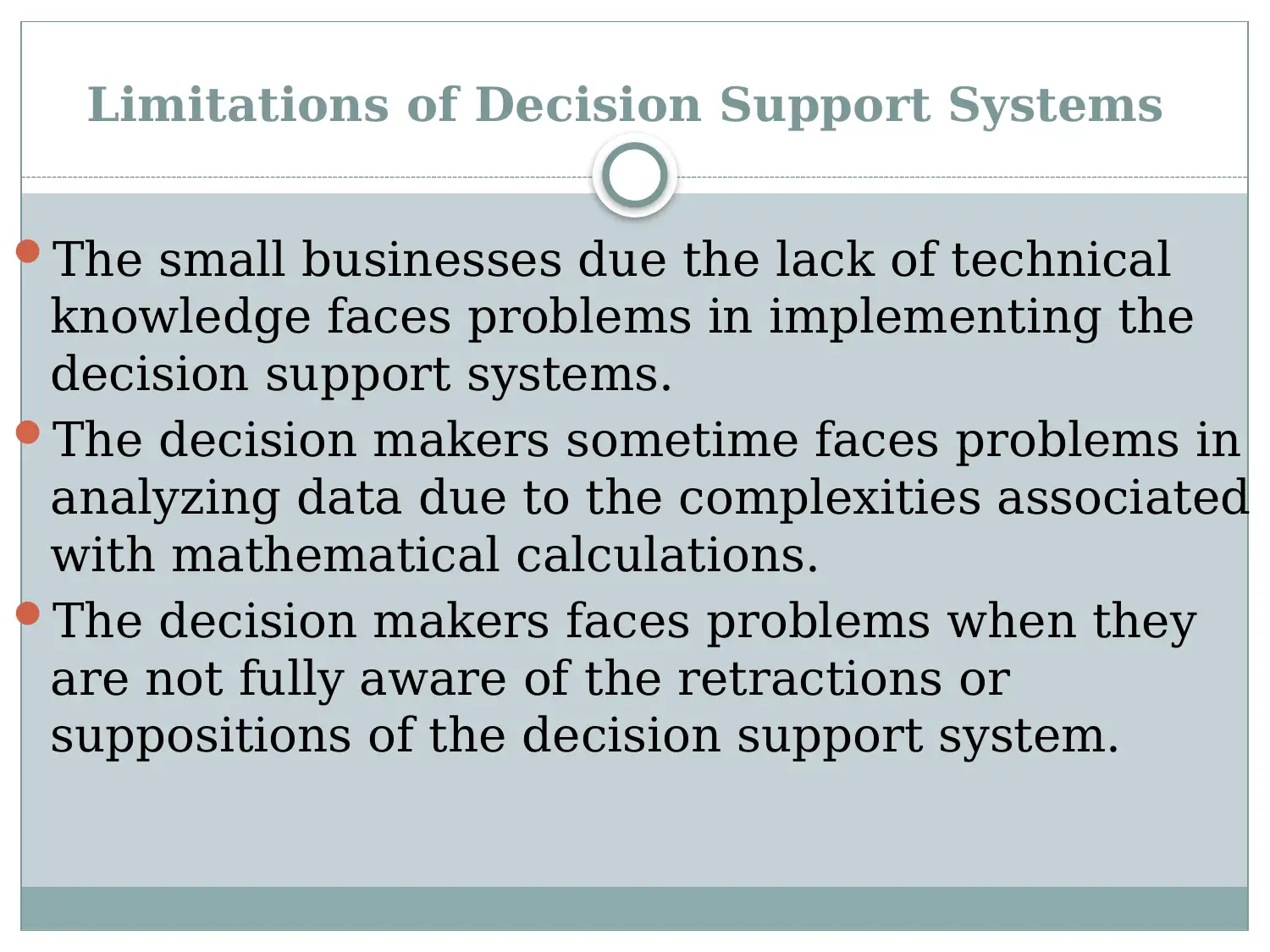





![[object Object]](/_next/static/media/star-bottom.7253800d.svg)